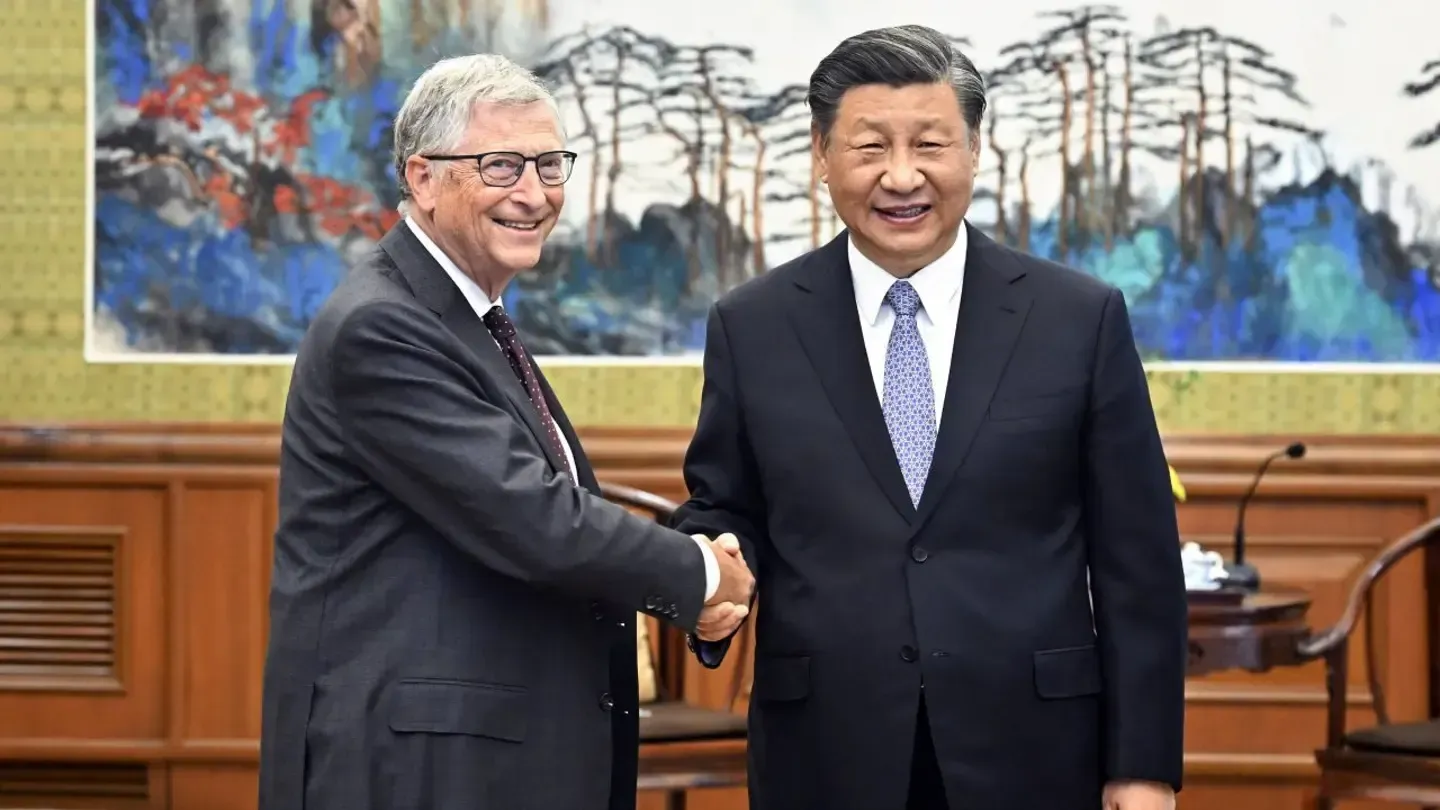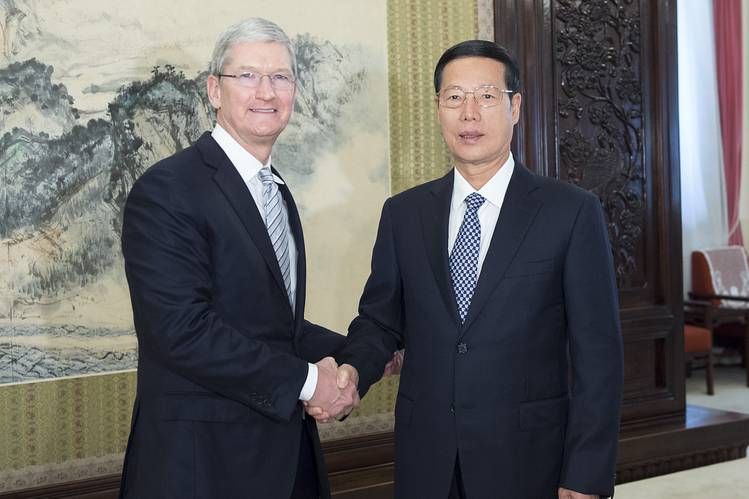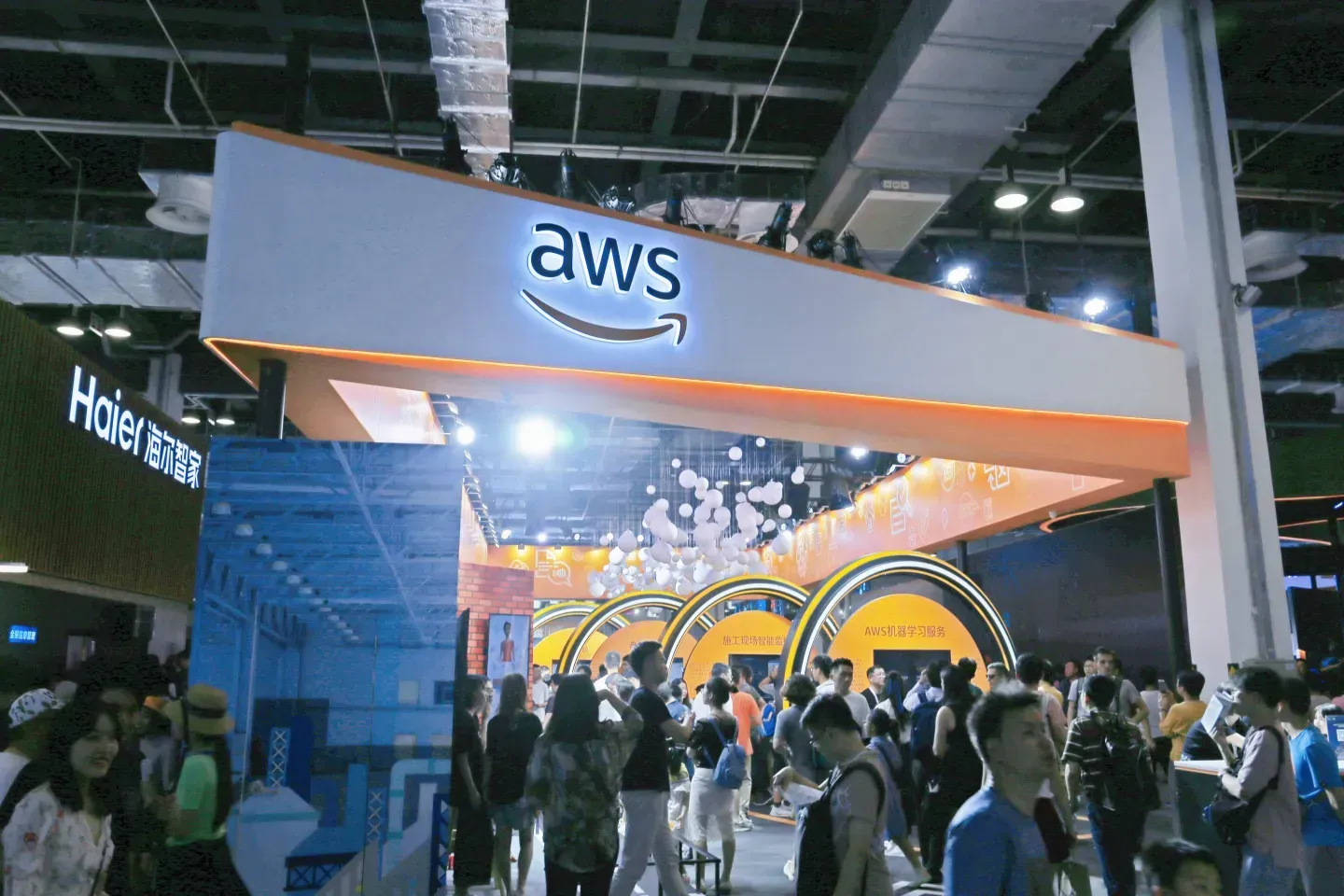Big Tech in China
Chinese law gives the country’s ruling Communist Party sweeping powers over any company operating in the People’s Republic of China (PRC), including American Big Tech companies. According to U.S. intelligence officials, PRC law could require Chinese employees of U.S. companies to assist Beijing with national security issues and intelligence activities, including investigations that could put U.S. companies and citizens at risk.

MICROSOFT
Recently, Microsoft founder Bill Gates traveled to China where he met with his “old friend” Xi Jinping, China’s dictator. Microsoft, the world’s second largest company, has proudly operated in Communist China for over three decades. On its website, the Big Tech giant boasts of “expanded business across the country” and its commitment to serving Chinese government entities at the “city, provincial, and national levels.”
Astonishingly, Microsoft now has around 10,000 employees in the People’s Republic of China (PRC). As Senator Marco Rubio told The New York Post, “Any company that expands its business operations in China is either naïve to the threat posed by the Chinese Communist Party or simply doesn’t care about working with a genocidal, anti-American regime.”
China and the U.S. are fighting over the future of the world. Will it be free and democratic, or will it be made in China’s image? The country that holds the key to that future is the one that wins the competition in artificial intelligence.
Conveniently for Microsoft, it's chosen to play both sides. It has a sweetheart relationship with the Biden Administration, which it uses to protect itself against any meaningful scrutiny. And at the same time, Microsoft also oversees a research center headquartered in Beijing, Microsoft Research Asia (MRA), which has played a critical role in training China’s military and developing the Communist Party’s AI capabilities. Alumni from MRA have gone on to lead companies in China that have been sanctioned for human rights abuses, including those involved in putting nearly two million Uyghur Muslims in concentration camps—the worst internment since the Holocaust.
Experts warn that Microsoft’s footprint in China is “out of step” with U.S. national security, and the tech giant sells and works on “sensitive” technologies in the PRC. And while TikTok is vacuuming up Americans’ data, sending it to the Chinese Communist Party, and using it to destroy the minds of American children, Microsoft is unbothered—announcing an AI partnership with TikTok’s parent company.
All of it begs the question: Whose side is Microsoft really on?

APPLE
Apple is deeply embedded in Communist China. The company has had a presence in the PRC for 30 years, including shuttering its American manufacturing operations and moving production to China in the early 2000s. Today, according to investigative reports, the Big Tech company assembles nearly all of its products in the PRC and has made $55 billion from selling in China.
Since Xi Jinping took power in 2013, Apple has done whatever it can to appease the Chinese Communist Party (CCP), including:
- Investing over $275 billion to “develop China’s economy and technological prowess”
- Handing over data on its Chinese customers to the government
- Removing and censoring iPhone apps proactively and at the CCP’s request, including apps about Christianity
- Helping the CCP squash protesters by disabling an AirDrop feature in China
- Removing VPN services that helped Chinese citizens get around CCP censorship
Apple claims to care about human rights. The company’s official commitment rings with all the sincerity of a corporate feel-good statement, “Our human rights policy governs how we treat everyone—from our customers and teams to our business partners and people at every level of our supply chain.”
But the company's actions fly in the face of those honeyed words. At least five companies connected to Apple’s supply chain have been linked to forced labor of Uyghur Muslims in Xinjiang, where the CCP runs concentration camps of unspeakable brutality. Apple has denied any wrongdoing, of course, but then it lobbied against U.S. legislation aimed at stopping forced labor in China.
Despite likely benefitting from slave labor and remaining silent on China’s human rights atrocities, Apple isn’t shy about injecting itself into American politics. The tech giant has a Racial Equity and Justice Initiative, which looks to “dismantle systemic barriers to opportunity” and “combat injustices faced by communities of color.” If only Apple cared to lend a helping hand regarding the "injustices" or "systemic barriers" that the Uyghurs or the protesters in Hong Kong face. If all that weren't enough, the company also lobbied against a bill in Iowa that would prevent males from competing in women’s sports.
Under Xi Jinping, China has doubled down on Communist brutality — committing genocide against the Uyghurs, terrorizing other minorities, and threatening war against Taiwan. Meanwhile, China continues to engage in repeated cyberattacks against the U.S. and to steal the intellectual property of American innovators. When Xi Jinping took over in 2013, it was clear that China was headed down a dark path. But rather than pull back, Apple continued to walk the red carpet into the arms of the CCP. Just recently, Apple CEO Tim Cook traveled to Beijing where he said he was “thrilled” and “privileged” to be back in China.
He celebrated the “symbiotic relationship” Apple has had with China and praised the company’s “rapid innovation.” At a time of simmering tensions between the U.S. and China, the CCP used Cook’s visit to criticize America and delegitimize our government’s efforts to protect national security.
Whose side is Apple really on?

AMAZON
Since 2004, Amazon has operated in Communist China. That's when the company bought the Chinese online bookstore Joyo, which it converted into Amazon China. More recently, Amazon has focused on promoting its market-leading cloud computing services in the PRC. As stated boldly on its website, “Amazon Web Services came to China in 2013, and has been relentlessly investing and expanding our infrastructure and business since then.”
The company touts establishing an artificial intelligence lab in Shanghai, having thousands of partners across China, supporting over 10,000 Chinese startups, and training over 700,000 “talents.” An Amazon white paper highlights the company’s “long-term commitment in China.” At an Amazon summit in the PRC, the company pledged to assist its Chinese clients with “artificial intelligence and big data capabilities.” Shanghai Daily noted that AWS can help “boost” China’s “digital transformation.”
In a galling potential violation of U.S. law, Amazon has provided these cloud services to Chinese military companies Dahua and Hikvision. Hikvision sell cameras used to detect the faces of Uyghurs, and Dahua sells “tiger chairs” used to torture and interrogate them. Hikvision also touts its technology as key to improving China’s missile and tank systems.
And given China’s repressive government, Amazon has to outsource management of its facilities in China to local affiliates. In other words, does Amazon even know what the Chinese Communist Party is doing with its technology?
With America and China battling for the future of artificial intelligence, the U.S. government is reportedly planning to restrict Big Tech companies from providing certain cloud services to China. Numerous press reports note the effect this could have on Amazon's and Microsoft's operations in Communist China. Like other Big Tech companies, Amazon has kowtowed to China’s government in the shameless pursuit of profits—censoring websites and services as part of the PRC’s “Great Firewall.”
And Amazon’s exposure and dependence on China isn’t just limited to AWS. Its main retail business is also inextricably bound up with China, as 63% of all third-party sellers on Amazon are Chinese. Despite the fact that so many of these sellers engage in fraudulent reviews, sell counterfeit goods, and steal Amazon’s internal data, Amazon actively recruits more Chinese sellers through summits and other means. The company may be headquartered in Seattle, but can it be trusted not to do Beijing’s bidding?
Whose side is Amazon really on?

